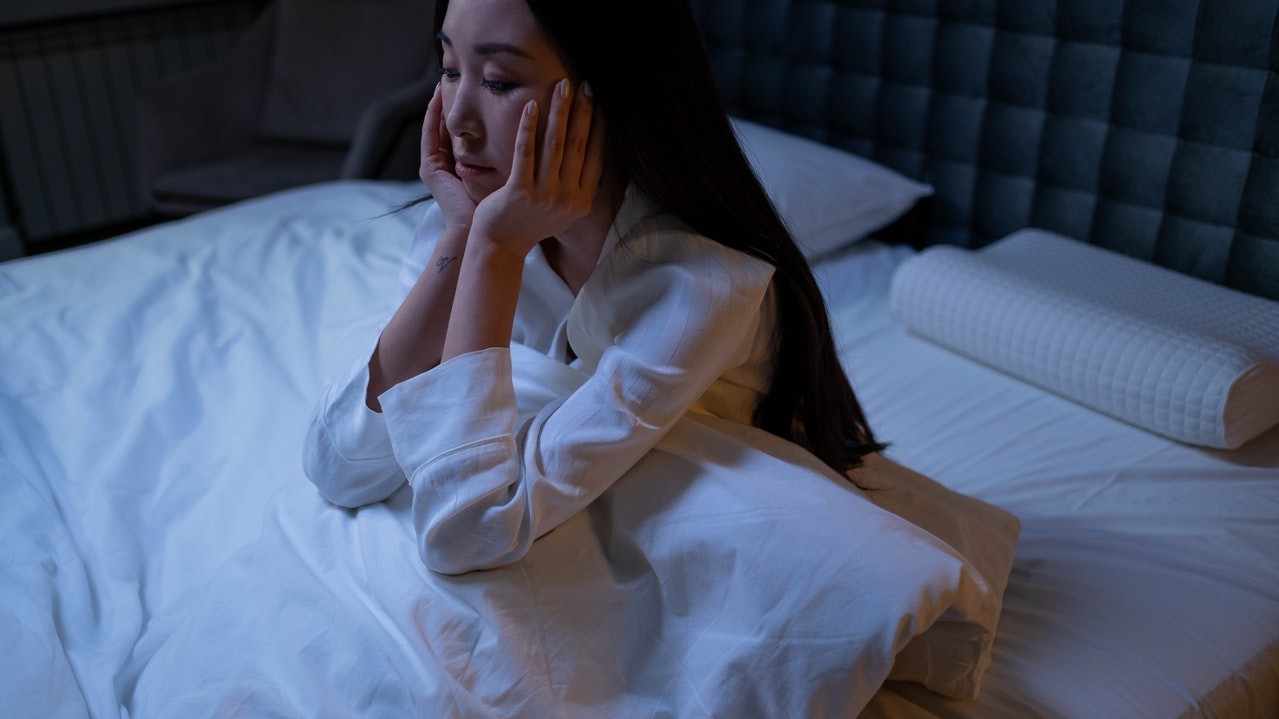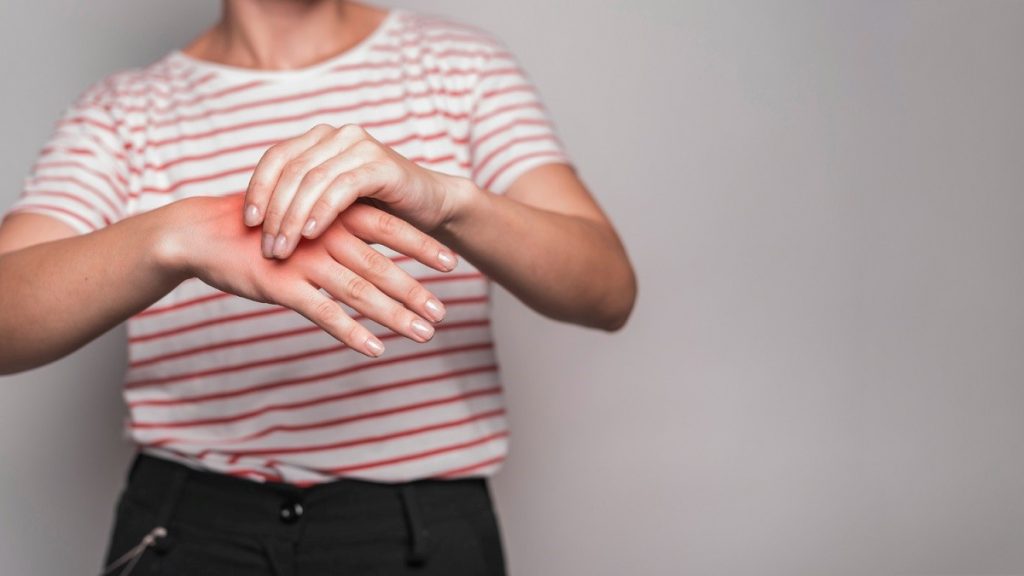Most of us might have experienced trouble sleeping at least once in our lifetime. Generally, sleep disorder is caused due to changes in our normal routine, stress, tiredness or any other illness. But continuous sleep irregularities can interfere with your daily life and can cause serious diseases or sleep disorders. More than just sleep deprivation, trouble sleeping can create serious impacts on mental and physical health, leading to weight gain, memory issues and mood swings. Don’t panic! You need not spend your whole life with sleep disorders. You can easily manage sleep disorders if you take some treatment and practise some changes in your current routine. These remedies can help you get a good night’s sleep and thus improve your health. Before heading to the remedies for sleep disorders, let us take a glance at the symptoms and causes of sleep disorders.
Symptoms of Sleeping Disorder
Sleep disorder is a condition in which your normal sleep routine is impaired, preventing you from getting comfy sleep, thus resulting in daytime sleepiness and other symptoms. Sleep deprivation can increase the risk of other health issues and affect other daily activities. Common sleep disorders like insomnia, sleep apnea, restless legs syndrome and narcolepsy can affect every life aspect including relationships, safety, physical and mental health, daily performance, and weight. If you ignore the irregularities in your sleep, it can affect your overall health and quality of life. Sleep disorders can be categorized into different groups based on their reasons and how they affect you, especially troubles with your usual sleep-wake cycle, difficulty sleeping, behavioural changes, breathing problems and excessive sleepy feeling during the daytime.
Some of the common symptoms of sleep disorders include
- Feeling grumpy and drowsy during the day
- Falling asleep, heavy-eyed or tired during work or other activities
- Restlessness or increased movement during night sleep
- Excessive snoring and breathing problems
- Lack of energy and difficulty in concentrating
- Poor performance at work or studies
- Difficulty in controlling emotions
- Depression and forgetfulness
- Struggling to stay awake
- Slow response and reaction
- Impulsive behaviours, aggressive nature and over anxiety
- Daytime fatigue and difficulty staying awake
- Feeling to take a nap most of the daytime
- Behaviour changes and mood swings
What Causes Sleep Disorders/Trouble Sleeping?

According to research, sleep disorders cause several diseases, health issues and behavioural changes, affecting the overall lifestyle. In most cases, sleep disorders and disturbances develop due to some hidden health issues. If not treated properly, your health will be at risk.
Stress and Anxiety
Health experts consider stress and anxiety as the major reasons for sleep deprivation. Stress and anxiety problems negatively affect your sleep cycle, leading to continuous sleeping abnormalities. Uncontrolled stress and anxiety can develop difficulty falling asleep during the night and you will feel tired during the whole day. Sleepwalking, sleep talking, and nightmares that disrupt your night sleep are also caused by stress and anxiety.
Breathing Problems
Respiratory problems and trouble breathing during sleep can cause sleep disorders. Difficulty breathing signals your brain to awake from sleep and forces the respiratory system to breathe harder and get over the breath obstruction. Cold, allergies and other respiratory infections also create breathing problems, especially at night. Snoring and the inability to respire properly through your nose can also cause trouble sleeping.
Body Pain
Chronic body pain can cause difficulty sleeping during the night. Severe and constant body pain can even wake you up in the midst of your sleep and spoil your whole night. The common causes of sleep disorders include continuous back pain, persistent headache, arthritis, fatigue, fibromyalgia etc.
Nocturia
Nocturia or frequent urination is strongly connected to sleep disorders. This condition can disrupt your sleep and make you awake during the night. Urinary infection and hormonal imbalances trigger this sleep disorder condition and spoil your health. Don’t be late to visit your doctor right away if you experience frequent urination accompanied by pain or bleeding.
Types of Sleep Disorders and Risks
Not getting enough sleep can damage the quality of your life. Health practitioners have grouped sleep disorders into different types. In many cases, these sleep irregularities are caused by some underlying health problems.
Insomnia
Insomnia is defined as the inability to sleep or difficulty staying asleep. Stress and anxiety, hormonal changes, digestive troubles, body pain, nocturia etc are the common reasons behind insomnia. If untreated, insomnia can affect the quality of your health, causing weight gain, depression, mood swings, behavioural disturbances, impaired work etc.
Parasomnias
Parasomnia is another type of sleeping disorder that causes abnormal behaviour and increased movements during sleep. The most common symptoms of parasomnia include sleepwalking, bedwetting, sleep talking, groaning, nightmares, teeth grinding and many other syndromes.
Sleep Apnea
Struggling with sleep deprivation or snoring? Sleep disturbances and snoring are the common symptoms of sleep apnea, and your dental health could be to blame. Sleep apnea is a severe condition that drives the body to intake less oxygen, leading to disturbed sleep during the night. The prime indicator of sleep apnea is tooth grinding.
Restless Leg Syndrome
Restless Leg Syndrome (RLS) is characterised by an uncontrollable urge to move legs. This condition is most prevalent at night often accompanied by a tingling sensation on the legs. Though it is said that Attention Deficit Hyperactivity Disorder (ADHD) and Parkinson’s disease is associated with RLS, the exact reasons for this syndrome is still unknown.
Narcolepsy
Narcolepsy, another type of sleeping disorder, is a neurological disorder that impacts your ability to control sleep and wakefulness. Excessive daytime sleepiness is what people with narcolepsy experience. The most alarming fact is that a sudden ‘sleep attack’ caused by narcolepsy can occur during any activity in the daytime. Most often, narcolepsy is not diagnosed properly and therefore left untreated.
Sleep Disorder Treatments and Remedies
Treatments for sleep disorders vary depending on the type of the condition and its underlying cause. Normally, with the right treatment and changes in lifestyle, sleep disorders can be cured completely.
Common treatments for sleep disorders
- Medications or supplements as prescribed by the healthcare providers
- Medication for cold, allergy, and respiratory problems
- Treatments for other underlying health problems
- Surgery or breathing device for sleep apnea
- Dental guard to avoid tooth grinding
Lifestyle changes
If you are ready to incorporate some modifications in your lifestyle, you can improve your quality of sleep and overall health. Follow these natural remedies to get rid of sleep disruptions.
- Stick to a fixed and steady sleeping routine
- Healthy diet with more vegetables and fish
- Avoid long naps more than 30 minutes
- Avoid strenuous activities or work-loads to bedtime
- Reduce your anxiety and stress by regular exercise
- Try to sleep with a clear mind
- Engage in enjoyable and relaxing activities
- Reduce your tobacco and alcohol consumption
- Drink less water just before your bedtime
- Reduce the intake of sugar and artificial sweeteners
- Eat low-carbohydrate meals in smaller quantities before bedtime
- Reduce the intake of caffeinated drinks
- Drink green teas or herbal drinks to deal with your stress and anxiety
- Avoid using mobile phones at bedtime
- Minimize noise, light, and temperature during sleep time
- Think positive
Sound sleep is very crucial for the overall well-being and better quality of life. So, practice good sleep hygiene and keep a routine of going to bed and waking up at the same time to get deep sleep regularly. If you are still struggling with your sleep, get the help of a sleep specialist or a healthcare provider to get adequate sleep at night.



